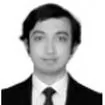The Turkish Personal Data Board (the “Board”) has recently published its assessment of the issue of security cameras with a voice-recording feature in a decision involving a public institution wishing to use such a system for security purposes. The Board concluded that the data processing activity via security cameras with a voice-recording feature is too interfering and constitutes a violation of the proportionality principle.
In its decision the Board underlines the general conditions of data processing and the general principles of the Personal Data Protection Law and highlights the following two principles:
(i) being processed for specified, explicit, and legitimate purposes, and
(ii) being relevant, limited, and proportionate to the purposes for which they are processed.
The Board also remarks that the right to the protection of personal data is a constitutional right and states that in cases where there is a limitation of a fundamental right or freedom, the nature of such a right should not be interfered with, and any restriction should not be against the spirit of the Constitution, the democratic social order, the requirements of the secular Republic, and the principle of proportionality.
In this respect, the Board states that the limitation of the right to the protection of personal data should not be interpreted broadly in a way that would seriously prevent the exercise of the right. In other words, the provisions limiting the right to the protection of personal data should be interpreted narrowly, with the awareness that these provisions are exceptions to the exercise of a constitutional right. The Board states that data processing activity via a security camera with a voice-recording feature must comply with the principles regarding the limitation of fundamental rights and freedoms specified in the Constitution.
If a data controller uses security cameras with a voice-recording feature but is able to achieve the targeted purpose via cameras without recording audio, this would constitute a violation of the proportionality principle. In this way, the data controller would disrupt the balance between the data processing activity and the targeted purpose.
The Board also indicates that the usage of security cameras with a voice-recording feature for a public institution's security might require the same necessity for similar platforms. This approach creates a broad exception and harms the right to the protection of personal data.
In conclusion, in its decision the Board outlines the data processing activities and proportionality principle by considering the Constitutional Court's decision in this area. In this respect, data controllers should evaluate their data processing activities to identify whether they comply with the proportionality principle or exceed the targeted purpose.
The content of this article is intended to provide a general guide to the subject matter. Specialist advice should be sought about your specific circumstances.



